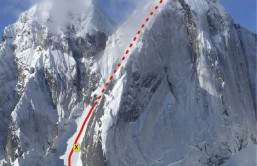After taking Mosul in Iraq, the Islamic State commander Omar al-Shishani, also known as Omar the Chechen, called his father to tell him the news, but what he also said Russia was next on the group's list.
"He said 'don't worry dad, I'll come home and show the Russians,'" Temur Batirashvili said, from his home in Georgia, reported Bloomberg. "I have many thousands following me now and I'll get more. We'll have our revenge against Russia."
Al-Shishani has become well known for his tactical capabilities in Iraq's Anbar province, west of Baghdad, and much of the group's success in Anbar can be attributed to this "one exceptional field commander and ISIL official who executed a series of brilliant tactical maneuvers," said Daveed Gartenstein-Ross, senior fellow at the Washington-based Foundation for Defense of Democracies.
The group of fighters led by al-Shishani is composed of around 1,000 Russian-speaking jihadists, most of who are Chechens, Elena Suponina, a Middle East expert and advisor to the director of Moscow's Institute for Strategic Studies, told Bloomberg.
"Once they have built their caliphate, they will return home and fight," Suponina said. "This is also a security threat in Georgia because these extremists want to establish Shariah everywhere where central government control is lacking."
Longstanding tensions in the Caucasus region, located between Russia, Iran and Turkey, have spurred separatist and militant movements who now have their sights set on taking out Russia, who has angered many in the area with their dominance and military victories in the Chechen wars.
Some of the youth decide to take up jihad because they are disillusioned with the economic situation and need a way out, Iza Borchachvili told Bloomberg. Employment is close to 90 percent in the Pankisi region. Others simply have nothing better to do, and coupled with a chance to be a part of something bigger than themselves, many find themselves heading to the Middle East.








